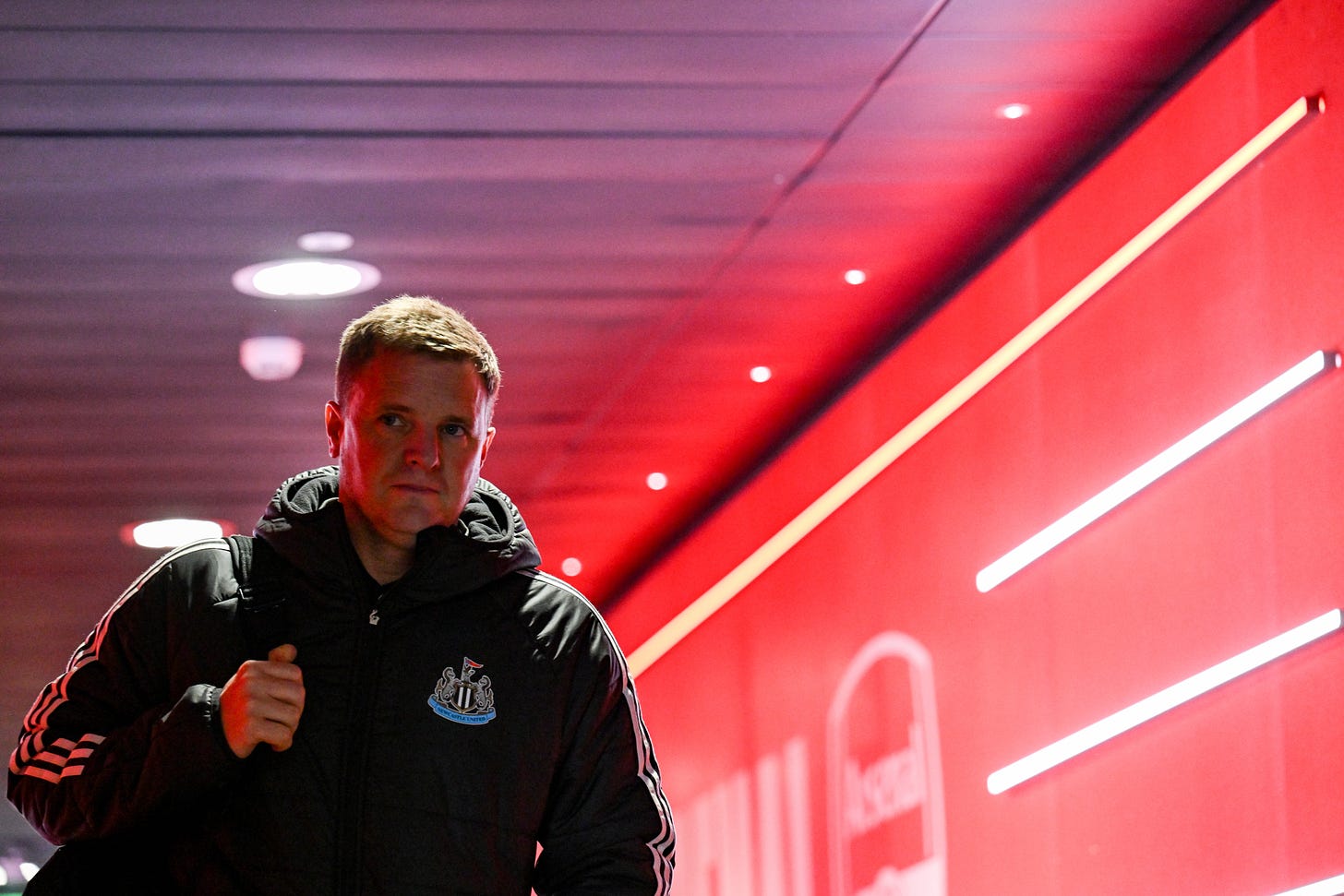Are Newcastle now a "Big Seven" club?
Commuters at London King’s Cross last night were astonished at the black-and-white waves rolling down the tracks from the North-east. They shouldn’t have been surprised, really. Newcastle United fans always travel in numbers. Away the lads, and all that. Six thousand headed to the Emirates for the first leg of their Carabao Cup semi. They could probably have taken double their allocation. In support, Newcastle have always been a big club. But a “Big Six” club? Events masterminded by Eddie Howe at the Emirates, St James’ Park and elsewhere, signal change also coming down the tracks.
I could have written this morning about the possibility of Elon Musk buying Liverpool and the prospect of explaining PSR and VAR to the king of X. I could have imagined the reaction of the Kop to being owned by a supporter of Tommy Robinson. But the chances of FSG selling, or Musk wanting to buy, are non-existent so I returned to the real world, and whether Newcastle could make the “Big Six” become the “Big Seven”.
King’s Cross provided the sights and sounds, the Emirates then witnessed a performance full of authority by Howe’s team, to set the mind thinking again about who are the “Big Six”? Many Newcastle fans think of their club as outsiders, kept out in the cold by Arsenal, Chelsea, Liverpool, Manchester City, Manchester United and Tottenham Hotspur.
Newcastle, so the Toon Army narrative goes, are victims of plotting within League meetings, deliberately kept at arm’s length by some “cartel”, and unable to spend their Saudi owners’ fabulous wealth because of jealousy and fears of sustained rivalry rather than any concerns over sustainability. Their sensitivity extends to any suggestion that Arsenal might take Alexander Isak, City take Bruno Guimaraes or Liverpool take Anthony Gordon.
But this is sport. Form and fortunes fluctuate. For all the headlines of drawbridges being pulled up against newcomers, the elite can never be an establishment shielded completely from the vicissitudes of sport whatever their history, wealth or influence. Look at Everton. They were part of the original “Big Five” who founded the Premier League in 1992 with Arsenal, Liverpool, United and Spurs.
Everton have history, a trophy record, fanbase and consistent involvement in the top division since 1954, huge qualifying factors for “Big” status. Everton then got left behind by issues on and off the field. They are capable of pushing themselves back into “Big” Six/Seven contention because of the size of their fanbase, eye-catching stature of their new stadium at Bramley-Moore Dock, which will be the envy of many, and wealth of their new owners, the Friedkin Group. Everton will be back, probably with a new manager.


